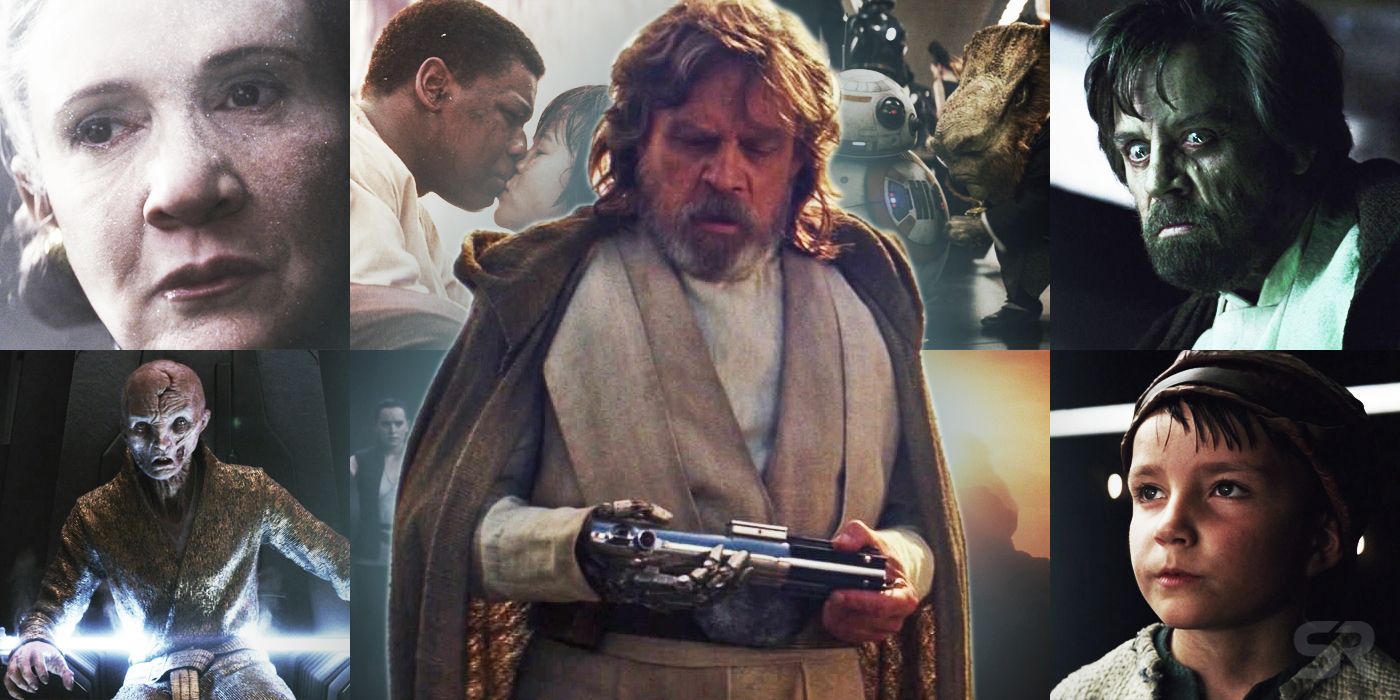
Did Star Wars: The Last Jedi's trailers and marketing help create the movie's backlash? The Star Wars fan divide has never been bigger, and it's mostly blamed on the release and surrounding decisions Lucasfilm made with Episode VIII. But could Disney have released the exact same movie to a much more accepting audience if they'd only marketed it better?
Rian Johnson's entry in the Skywalker Saga upended many of the open-ended questions established by J.J. Abrams in Star Wars: The Force Awakens, revealing Luke was a cut-off hermit, Rey's parents were nobodies, the Knights of Ren a side note, and making former leads Poe and Finn into supporting failures. Throw in shock deaths for Snoke and Luke, Leia using the Force to fly through space, a heavy leaning into bathos, and a prequel-esque jaunt in Canto Bight, and you have one seriously broken fandom. But many of these problems are less to do with the movie itself and more expectations; The Last Jedi doesn't directly contradict anything in The Force Awakens - Luke is already a nomad and Maz indicates Rey's parents aren't actually important - and all of its story choices and plot twists are logical when viewing the Star Wars sequel trilogy as the story of supreme villain Kylo Ren and its second entry and deconstruction of the whole franchise through the prism of failure.
Related: How The Last Jedi Changes Star Wars Forever
Simply put, so much of Star Wars: The Last Jedi's backlash seems to come from it not lining up with what had been speculated off the back of Abrams' reboot than it was actual criticisms of Episode VIII as a film. And while there's an argument that Rian Johnson shouldn't have been so aggressive in his bid to subvert those expectations, it's also true that some of these aspects would have landed better with the proper establishment. Essentially, the trailers missold the movie.
In recent years, we've seen advertising become a bigger part of a movie's narrative. Trailers giving up too much of the plot or spectacle reflects badly on movies, and missold tone leads to threats of lawsuits (see Drive presented as a Fast and Furious riff), which has seen a rise in spoiler-phobia and secrecy. Unfortunately, in 2017 it went too far. Box office bomb Blade Runner 2049 preached only to the converted fans of the original cult classic, and Star Wars: The Last Jedi failed to prep its already guaranteed audience for what was to come.
- This Page: How The Last Jedi Marketing Stoked The Backlash
- Page 2: What Infinity War Got Right & How Mystery Is Hurting Star Wars
- Page 3: What Lucasfilm Should Have Done (And What They Should Fix For Star Wars 9)
How The Last Jedi Was Marketed (And Why It Was Wrong)
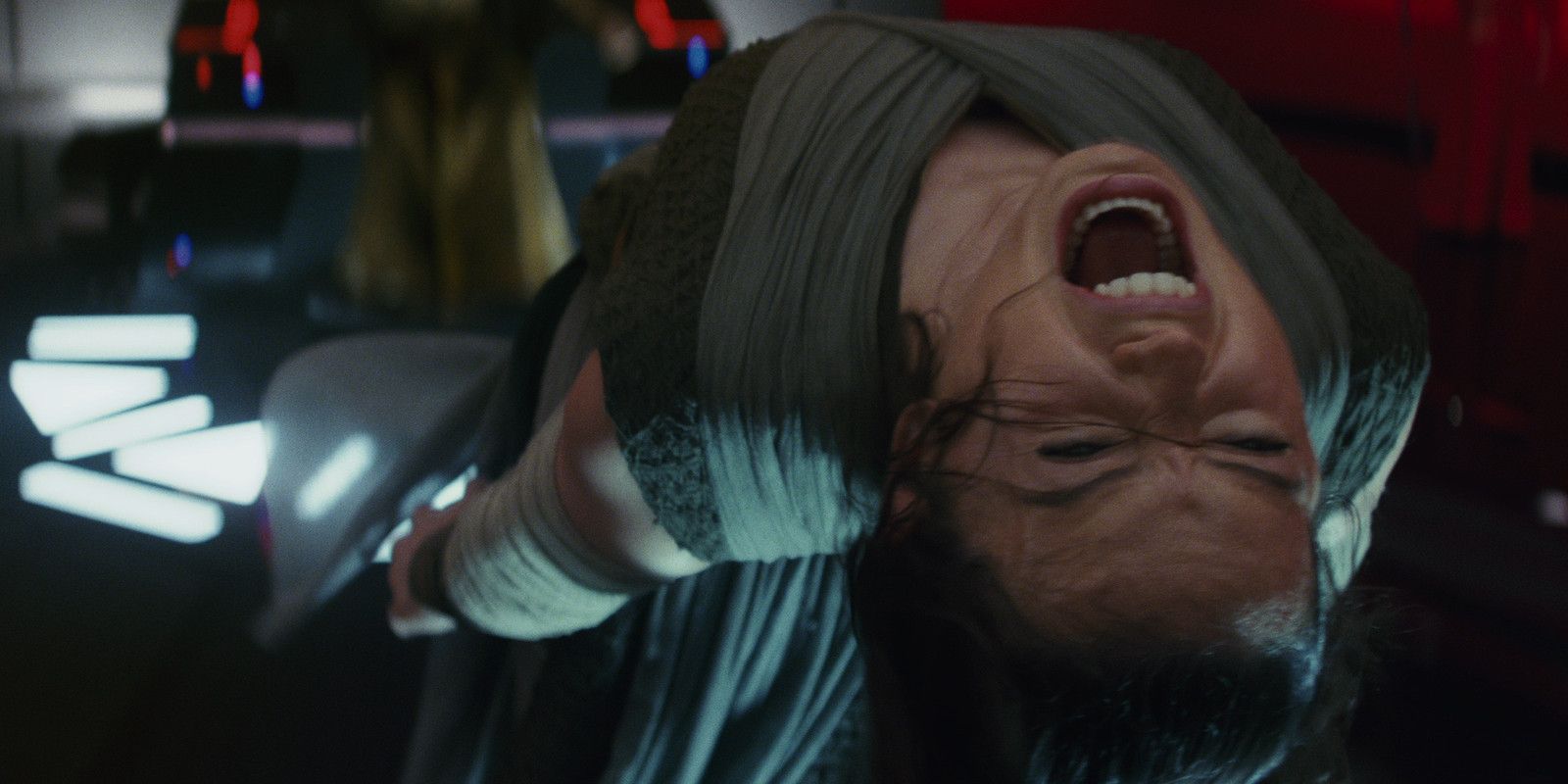
Star Wars 8's marketing technically started in February 2016, less than two months after The Force Awakens released with a production announcement video showing Daisy Ridley and Mark Hamill picking up where they left off. However, things didn't really kick off until a year later with The Last Jedi title reveal in January 2018. The first teaser released at Star Wars Celebration in April, a behind-the-scenes reel at D23 in July, a Force Friday merchandise launch in September, final trailer (and tickets sale) in October, and then the usual blitz of tie-ins and TV spots leading up to the December release. All in all, it was a pretty standard rollout for one of the big movies of the year. Indeed, it basically mirrored the approach for Star Wars: The Force Awakens, except that had an earlier teaser in November the previous year to announce the entire Saga's return under Disney after a decade away.
Scheduling wasn't the only thing The Last Jedi borrowed from The Force Awakens, however. J.J. Abrams' Star Wars 7 had been made under an air of extreme secrecy, with the director employing his classic mystery box storytelling to keep as much of what was in store a secret. Who was Rey? Kylo Ren? Where was Luke? All these secrets and many, many more were maintained from casting through to release, with the movie resolving some and leaving others as dangling questions. It was a move that worked on many levels: it made the prospect of more Star Wars unpredictably exciting, brought focus onto the new story, and helped build hype for the trilogy to come.
Related: What George Lucas' Star Wars Sequel Trilogy Was About
The Last Jedi followed a similar level of secrecy. From the very start, the identity of the Jedi in the title (and whether it was singular or plural) was the topic of much debate that director and stars kept up for months, and the trailers aimed to obfuscate just about everything. All you'd really know about the film based on its two primary trailers that played in cinemas is the following: it picks up straight after The Force Awakens; Rey trains in the Force (sort of); Luke wants the Jedi to end (for an unclear reason); there's at least one space battle (where Kylo may contemplate killing Leia); there is a salt planet battle; Finn fights Phasma; Snoke captures Rey; Rey and Kylo Ren may consider teaming up (but there was questionable trailer editing); Porgs exist. That's it. More could be gleaned by TV spots and tie-in materials, but even then, anything approaching the big questions left by The Force Awakens or refuting of baked-in fan theories that were flat-out wrong was in short supply.
And this was a problem. Yes, The Last Jedi's secretive marketing protected from any and almost all spoilers, but it also didn't establish what the movie itself was going to be. There was none of Luke's personality, none of Rey and Kylo Ren's growing relationship, none of the comedy. Audiences had simply no idea what Star Wars: The Last Jedi was.
The Last Jedi's Marketing Sold A Force Awakens Sequel, Not The Last Jedi
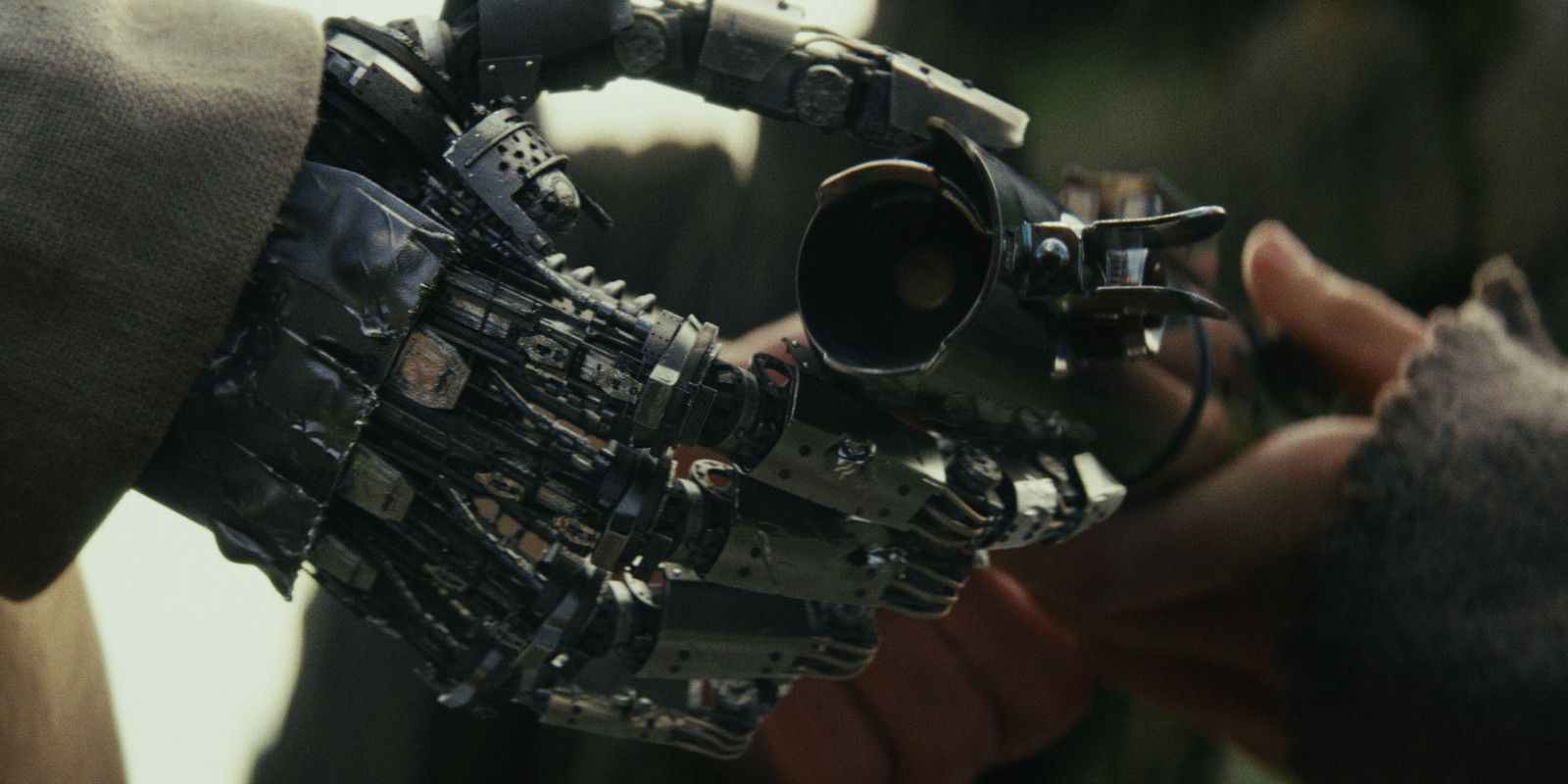
On a basic level, Star Wars: The Last Jedi is a sequel to The Force Awakens. But just as Star Wars 7 was a sequel to Return of the Jedi, start of a new trilogy and legacy-quel reboot, so too was its follow-up doing more than just continuing the story. The Last Jedi takes characters we've known for multiple movies and evolves them. Luke is a tortured figure when we meet him 35 years later; Leia is able to tap into the Force in a moment of mortal threat; Kylo Ren is more confused than all-evil after killing his father; and Rey's parents really aren't important. These are big topics that go against previous understandings, and the themes are just as unexpected: failure as a teacher; learning from the past while moving beyond it; and on a more intimate scale, Star Wars is not just about the Skywalkers.
It's not hard to see that these are challenging ideas for Star Wars. The two previous Disney-era films had been a spiritual remake new beginning and war-is-hell evoking of original trilogy aesthetic; they were firmly in the Star Wars ballpark. The last time Star Wars truly deviated from expectations was when Episode I: The Phantom Menace slowed the pace, provided political backstory and explained the Force. There, it was also held back by wooden dialogue and weak filmmaking, but the lessons of surprise should be clear. Yet Star Wars: The Last Jedi's marketing did nothing to prep people for what was coming beyond promising a ride that was more of the same. The most the trailers did were include choice quotes like Luke's "This is not going to go the way you think" or Kylos' "let the past die, kill it you have to", which is frankly not enough to work against those theorizing Snoke is Darth Plageuis or other madcap irrelevancies.
Related: Snoke's Death Is The Best Movie Twist In Years
This undoubtedly made everything more affronting. Luke's personality shift was bigger, the jokes more extreme, the deaths more shocking. And with that comes a bigger backlash. It's easy to point at Star Wars: The Last Jedi itself as being the root of all these problems, but it's really all in the build-up. And we can see that best when comparing to Disney's other major franchise...
Page 2: What Infinity War Got Right & How Mystery Is Hurting Star Wars
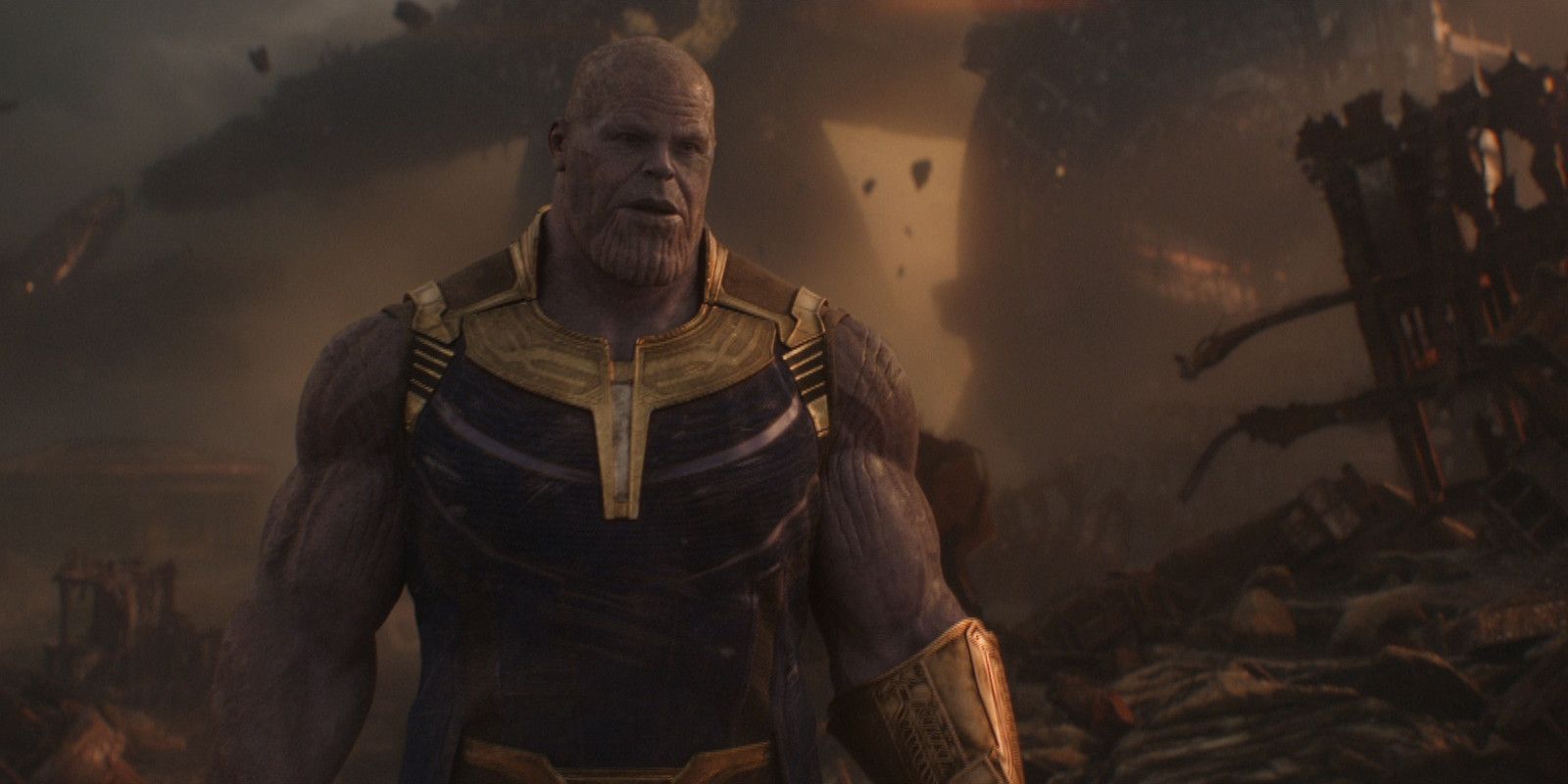
Avengers: Infinity War Shows How To Do It Right
As already alluded to, the spoiler-averse approach to marketing is prevalent across cinema, even though it may not necessarily be the optimum way to sell or consume a movie. Studies have shown that spoilers tend to enhance a viewing experience due to how they frame a story ahead of time, and in that vein, most successful cases of spoiler-phobic marketing are ones that still present a well-rounded sense of the movie. Indeed, for all the secrecy, bar the big mysteries Lucasfilm didn't hide much of Star Wars: The Force Awakens; its familiar plot and focus on evoking classic Star Wars tone is up front.
For a perfect example, you need only look to the MCU. This is a franchise that is notorious for secrecy - jokes about actors not being able to say anything has been interview fodder since Avengers: Age of Ultron (as has the threat of Mark Ruffalo accidentally revealing something) - yet has marketing that typically shows all but one big twist and fun Easter eggs (see: the Mandarin in Iron Man 3, Hydra infiltrating S.H.I.E.L.D. in Captain America: The Winter Soldier, Ego being the villain Guardians of the Galaxy Vol. 2, the Vulture being Liz's father in Spider-Man: Homecoming and many more).
You get this best with Avengers: Infinity War. Marvel locked up the ending, having Thanos' victory and the snap victims be on an entirely need-to-know basis, and was likewise quiet about anything involving the Soul Stone (Red Skull's return or Gamora's death), yet over the course of several trailers alluded to pretty much everything else: the character team-ups, Thor's mission, the Battles in Wakanda and Titan, the mix of apocalyptic and comedy. A lot was still held back, of course, but a considerably high amount of the story was out there beforehand; there was no doubt that the movie being sold was the movie delivered. The trailers showed the right things, prepared audiences to not expect a Civil War reunion between Captain America and Iron Man, and built up Thanos in such a way that even with the unexpected cliffhanger (the marketing downplayed the previous "Part 1" announcement) felt fitting. It displayed all the awareness of the finished product that The Last Jedi's trailers didn't.
Related: Infinity War 'Part 1' Was Marvel’s Best Trick - But 'Part 2' Poses A Problem
Star Wars Doesn't Need To Be A Mystery Box
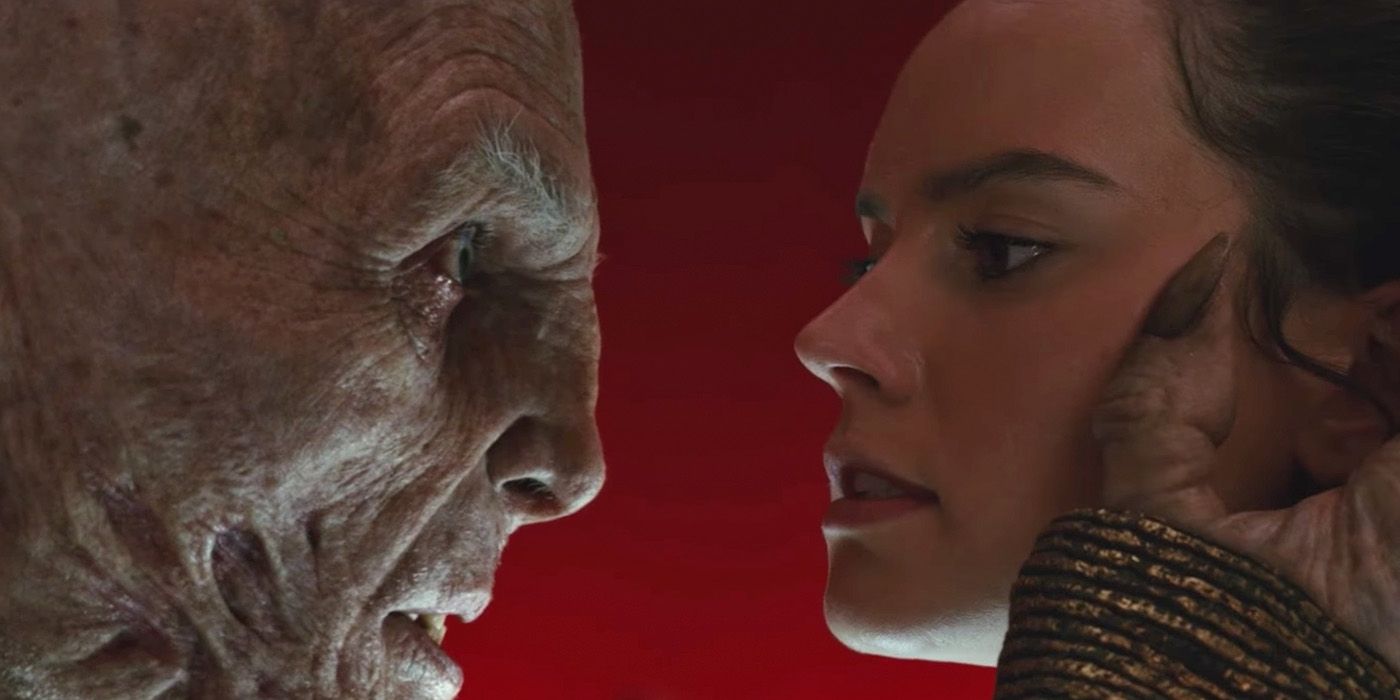
All of this discussion, ultimately, comes to rest on one simple fact: Star Wars is being treated as a mystery box. This is the J.J. Abrams way, building up excitement for a movie with teases of a promise, letting the hunger to find the answer to some grand mystery be the key sell. It's the monster in Cloverfield, it's the meaning of the island in Lost, it's the monster (again) in Super 8, and it's what exactly Star Wars: The Force Awakens is.
Fundamentally, the mystery box is not a good filmmaking device. It's a marketing trick alone and only serves to direct audiences into watching a product they may not have otherwise. That's why the mystery box aspect of a film's marketing is rarely the reason it succeeds artistically: while the viral marketing worked with Cloverfield, that movie really succeeds off Matt Reeves direction; Lost didn't have answers to its questions but instead found life in its characters; Super 8's strength was nostalgia, not its monster; and The Force Awakens was just Star Wars 7 after all. You can see how broken the mechanic can be with The Cloverfield Paradox, which used classic mystery box techniques of a shock release method and hamfisted retcon to hide the fact it was just a very bad movie.
Now, Star Wars has always had mystery. The Darth Vader twist in The Empire Strikes Back was known only by Lucas, producer Gary Kurtz, director Irvin Kerschner, Mark Hamill and James Earl Jones, while the production planted fake spoilers in magazines to throw fans off the scent. But this was a slight consideration at the time. By the time of the prequels, Lucas was very open, with a constant stream of set videos shared on the early internet, Qui-Gon's death spoiled by The Phantom Menace soundtrack, and Revenge of the Sith marketed heavily on the presence of Darth Vader. They were movies with a known outcome, sure, and had obvious twists (Padme's secret, that Count Dooku was a Sith and the identity of Darth Sidious), but it was still noticeably transparent.
That every Star Wars movie is produced under immense secrecy is really born from the Disney era, and specifically Abrams. And it needn't be; The Force Awakens got away with it thanks to how well the movie replicated the feel of Star Wars, but that all its mystery really amounted to one character being a new-generation Skywalker, the death of a legacy hero everybody expected to bite it already, and a plot that mirrored A New Hope is certainly perplexing. In truth, the use of the mystery box for the film's marketing had a very different purpose to narrative; it was bringing Star Wars back under a cloud of cynicism following the prequels and needed a longer lead-in, more "feel" focused push, and to build up hype for more - something for which teasing ambiguity helps.
Related: No, Luke Skywalker Didn't Change Personality For The Last Jedi
With Star Wars: The Last Jedi, though, the mystery box just means that some of its most interesting aspects are held back for far too long. The audience for Disney Star Wars was proven by The Force Awakens and Rogue One, so it was more a case of raising awareness and getting everybody ready for the release than actually selling something. The mistake was assuming that people needed to be dragged into the cinema once again.
Page 3: What Lucasfilm Should Have Done (And What They Should Fix For Star Wars 9)
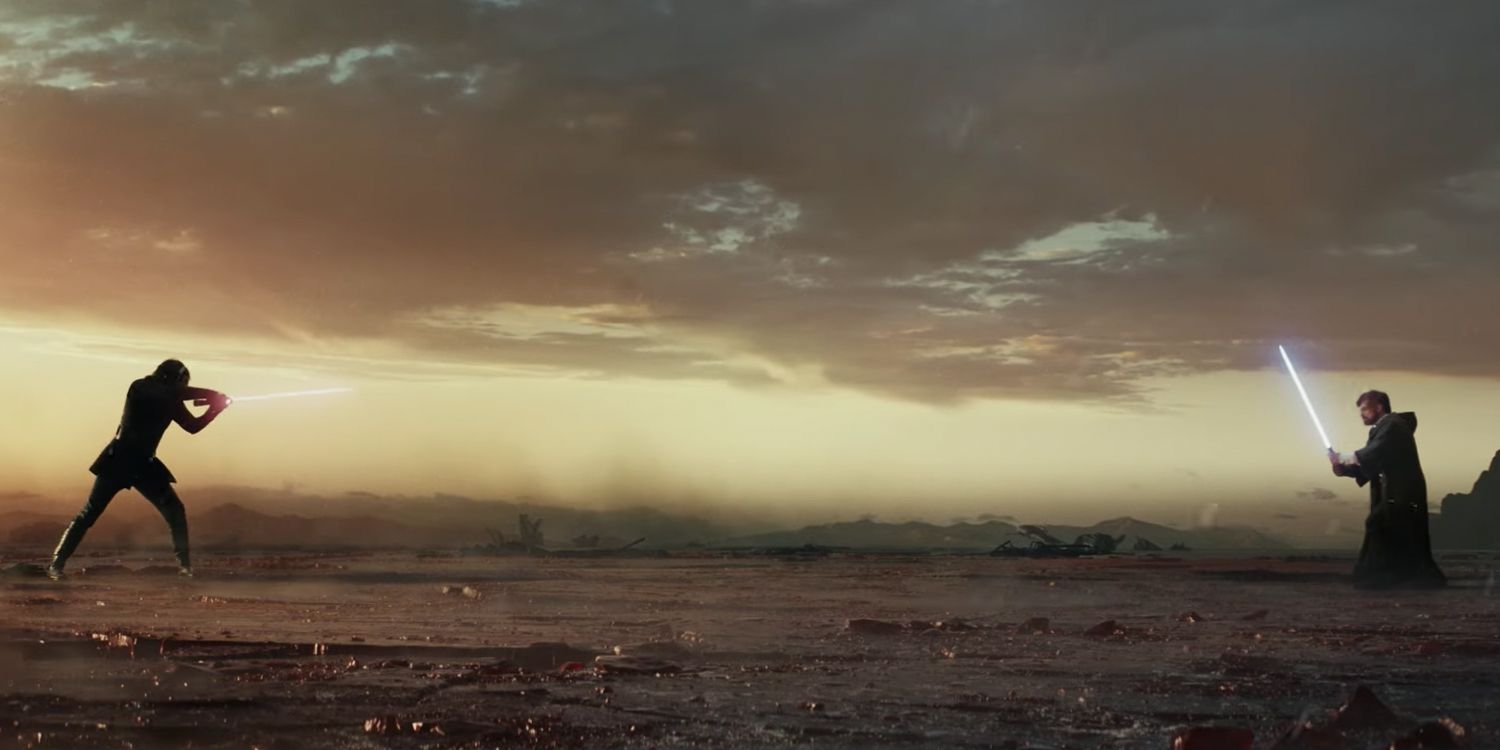
What Lucasfilm Should Have Done With The Last Jedi
So, with the problems - both in practice and ethos - laid out, how should Lucasfilm have approached Star Wars: The Last Jedi's marketing? Put simply, lead into the movie more. Admit outright it's a full subversion, reveal some of the more contentious elements, and allow fans to get used to it. All of this would lead to the predictable debates, but it would happen before the movie released, not after. History has taught us that Star Wars fans will always resist change, but with enough reinforcement will accept it.
Give the first act of each arc. Instead of teasing Luke being disenfranchised with the Jedi, make abundantly clear he's cut off from the Force and that Kylo Ren is the cause (this would also give Mark Hamill more to talk about, playing down his "fundamental disagreement" with Rian Johnson). This wouldn't mean showing the lightsaber throw - that's a perfect surprise for theaters - but priming audiences for the character would make it land with the intended effect. The same ethos goes for Rose and Canto Bight - they were mostly absent from the mainstream marketing, making them a jolt - or the humor - the trailers woefully missold the movie's tone - or Reylo.
What should be hidden is the death of Snoke and Luke, Rey's parents, Leia in space and the Holdo maneuver (Yoda could be held back but it doesn't really matter). However, none of these should be straight-up hidden as they were: establish Snoke's role (while downplaying an identity reveal) making it surprising when Rey is before him early; tease Luke and Kylo's showdown; reveal Kylo knows Rey's parents' true identity; show Leia injured and Holdo's conflict with Poe. The payoffs of these subplots would obviously land best as part of the movie, but removing the setup from the trailers puts the audience as a disadvantage for engaging with such a packed movie.
Related: The Last Jedi Is The Batman v Superman Of Star Wars
How Lucasfilm Can Fix This For Star Wars 9
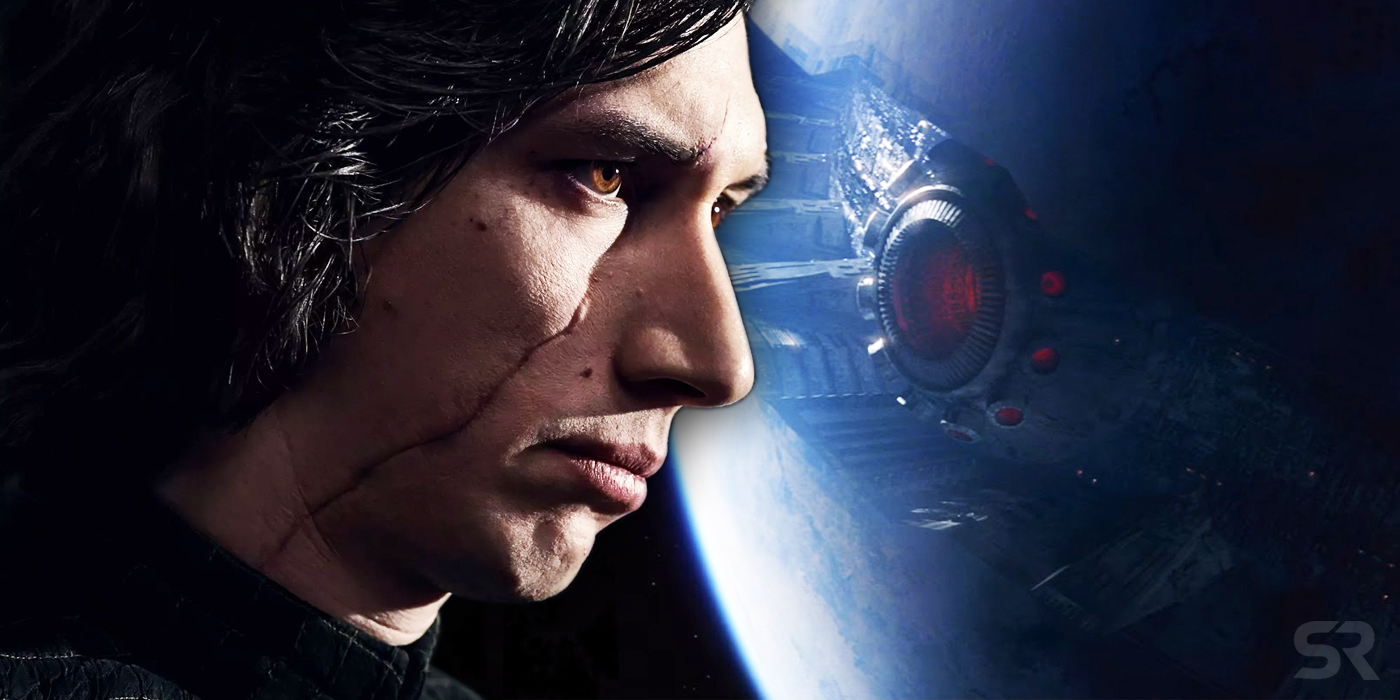
That exact approach is what Lucasfilm should follow through with on Star Wars 9. Is it "correcting" The Last Jedi? Is it a remake of Return of the Jedi? Is it a time travel jaunt through the past films? Whatever Star Wars 9 is, it should be outlined clearly and carefully during the advertising campaign. That needn't mean everything is dumped in the first teaser or that the majority of surprises aren't held back, but a more honest presentation of the film will both prep people for what Abrams has done and ideally undo some of the damage done so far.
The irony of the backlash stoked by The Last Jedi's marketing is that Star Wars 9 is now perceived as needing to "win back" a portion of its audience only just brought back on board by The Force Awakens. This means there will be a supposed advantage to returning to the mystery box and teasing reveals and secrets, but that really only propagates the cycle. To truly move on from the mistakes of the past, the Star Wars marketing machine needs to actually understand The Last Jedi learn from its failures.
They are, to a point, already doing this. The official production announcement included confirmation that Episode IX is (for now) the end of the Skywalker Saga, that Mark Hamill will return and unused footage of Carrie Fisher will finish Leia's story. All three of these could easily have been kept a secret up to release (see Yoda in The Last Jedi) but that they're out there now means audiences won't be startled to distraction by Force Ghost Luke and a resurrected Fisher. But it shouldn't stop here. Is there a new Death Star? Understandable, but don't hide it. Is Matt Smith just a First Order general? Then say that, don't let speculation he's Rey's father override everything else.
-
Star Wars fandom is complex, formed of multiple generations of audiences who get entirely different things from the saga and all believe their view of the multimedia empire to be the correct one. That's one of the most amazing things about the series, but also makes keeping it going a challenge. Disney has (mostly) hit the right note in pleasing as many people as earnestly possible, they just need to get more open about what their Star Wars plans are. And it all starts with those trailers.
Next: Star Wars 9: Everything You Need To Know
from ScreenRant - Feed https://ift.tt/2PzM5m2


0 Comments